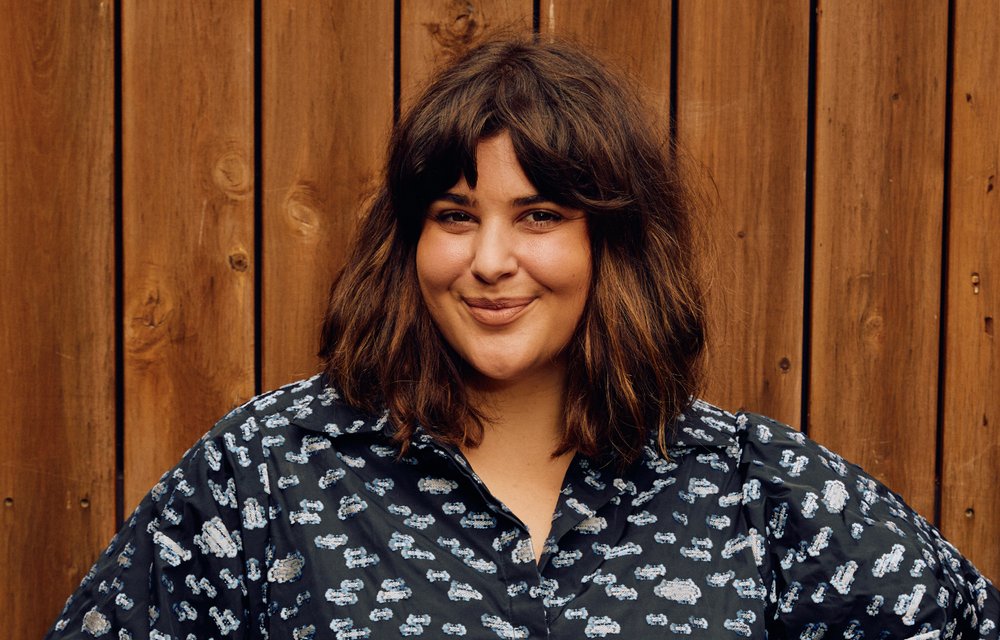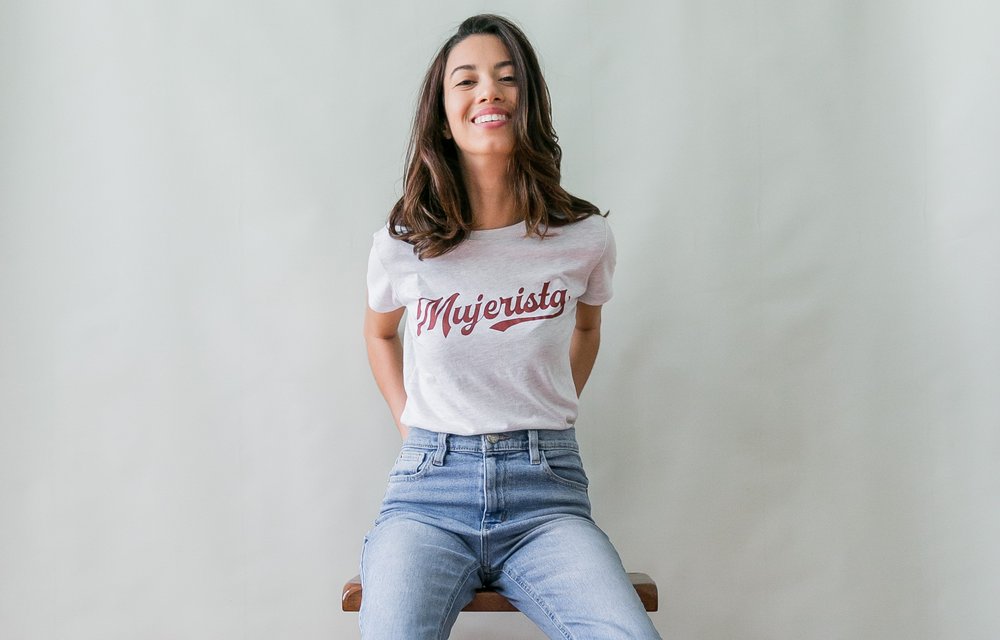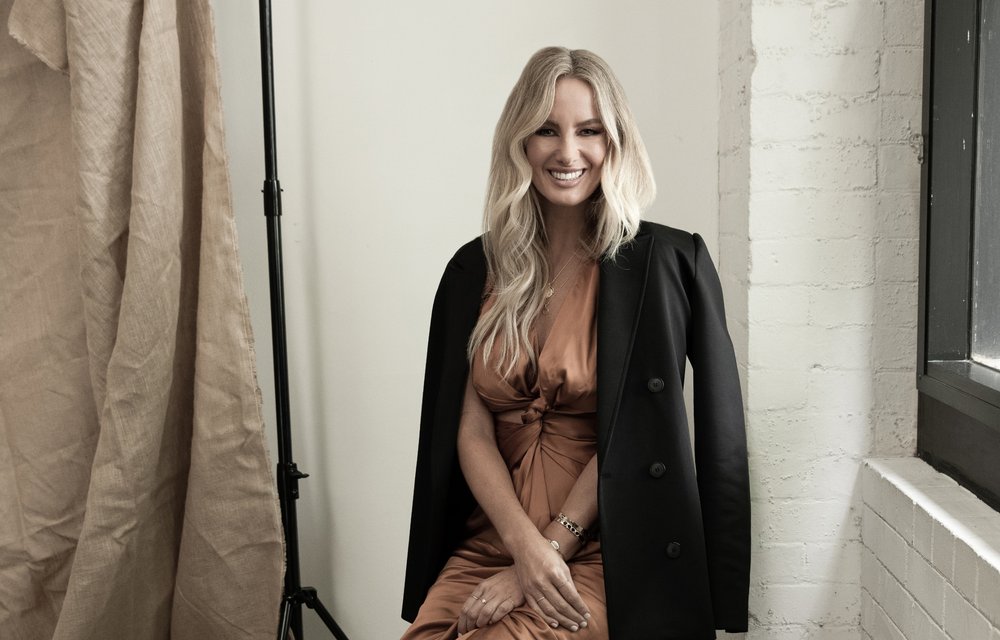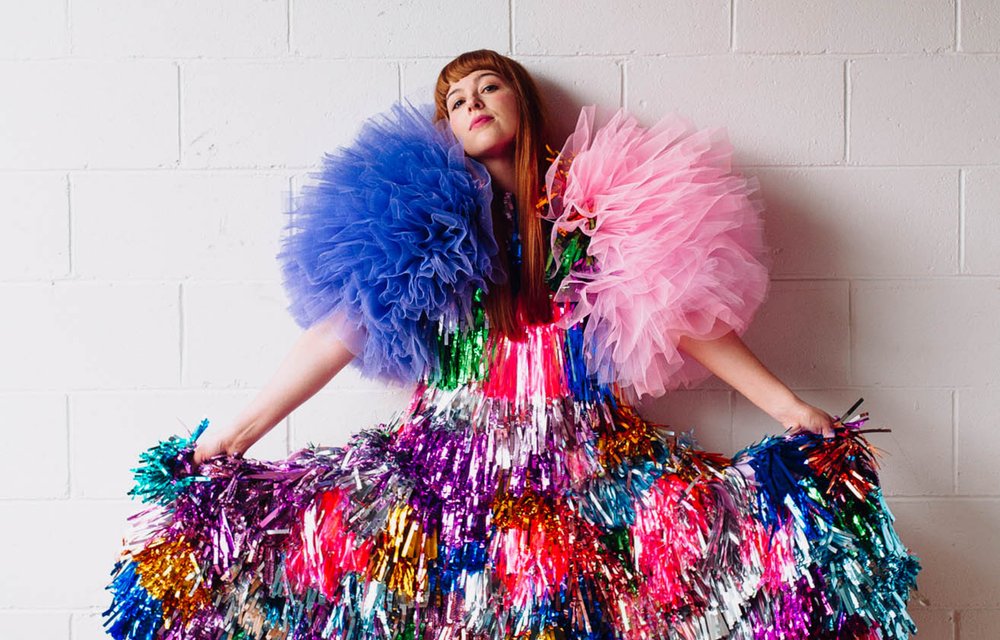Download our free social media marketing guide to get savvy and grow your small business.
The email you entered is invalid.
Thank you for subscribing.
By entering your email, you indicate that you have read and understood our Privacy Policy and agree to receive marketing from Squarespace.
Running social media for your brand is both strategic and highly personal, especially for small business owners or creatives whose work marries the two. What works for one person or one type of business might not work for another, but everyone eventually has to figure out what social media means for their brand. That includes learning what to share and when, and how to stay authentic in an online context.
We dove into those topics with four creators and entrepreneurs on Squarespace:
Rachel Burke, artist and designer
Marivette Navarette, founder and CEO of The Mujerista
Julia Busuttil Nishimura, food writer and creator
Samantha Wills, writer, creative, and educator
Learn how social media has helped each of them grow their brand or business in their specialized niche, and how they manage their own social media presence.
Accessing an interconnected global community
Plenty of big brands have a social media presence to build out and connect with their audience. But for creatives and entrepreneurs, the platforms offer a chance to build a community that fuels their work.
“Social media has been instrumental in the way I have found and connected with my community. In the early days, it was really a driving force behind my growth as a brand,” says Julia. “It has become an amazing way to connect with fellow food writers and peers which has been so wonderful.”
“It has allowed a two way conversation, allowing me to talk with my consumer, rather than just to them,” Samantha adds.
“Social media has been instrumental in the way I have found and connected with my community. ”
Every entrepreneur we interviewed noted how social media has helped them not only open a conversation with their followers, but expand their reach far beyond their immediate location—or even country.
“In sharing my work, I have been able to strike up conversations with people that I may never have had—particularly when those people may be located in other parts of the world,” says Rachel. “A great example of this was an opportunity that came about for me as a result of sharing my work on social media. An art school in Telluride, Colorado, was able to connect with me via Instagram, see my work, and invite me to do an installation and series of workshops at their space. This was a huge opportunity for me and an amazing adventure, made all the more special by traveling across the world to meet up with so many like-minded creatives who I may otherwise never have met.”
Marivette tells a similar story. “We exist to amplify the underrepresented voices of Latinas. Social media has allowed us to discover and directly engage with these Latina voices worldwide, making connections more accessible and effective than ever,” she says. “When we launched, I initially imagined building a community specifically in my hometown. However, the need for Latina spaces was so crucial in our community that we began attracting Latinas from throughout the United States. Soon enough, we were reaching Latinas on a global scale—a feat that I had not envisioned and would have been more difficult (especially as an independently run platform) without the visibility social media afforded us.”
Deciding what content to share
Brands and creators can do more than forge strong relationships within social media spaces; those are also the same spaces where they do business and build out their brand presence. For entrepreneurs, it can take some trial and error to figure out what type of content to post, how much to share, or how to incorporate social content creation into the rest of their work.
For Marivette, the focus of The Mujerista is “to provide a supportive gathering space where Latinas can feel empowered to be their authentic selves, grow, and connect with each other.” To stay true to that mission, their social content needs to clear a few questions: “Does this content speak to the multilingual, ambi-cultural identities of Latinas? Is it rooted in positive representation and our brand values? Is this information that will better inform or support Latinas?”
But, she says, “We focus less on the number of posts and more on the quality of the content. But when in doubt, we lean into our community. This allows us to never lose sight of our purpose and stay connected with the needs of our community.”
One way that Samantha manages the differentiation between business and her personal life is by splitting her accounts between the two. That way, “I post what feels right to me, rather than overanalyzing what I should or shouldn’t post based on engagements,” she says. “However both feeds lead to a singular Squarespace website, so it is as if the two are the store window inviting people in to explore/immerse/shop my website.”
“We focus less on the number of posts and more on the quality of the content. But when in doubt, we lean into our community.”
On the flip side, Julia and Rachel, whose work is more closely intertwined with their day-to-day lives by nature, have both developed their own way of bringing a healthy balance to their respective feeds.
“I think people follow me for the food, but they are also aware I am a real person behind the brand, and I think the personal nature of it is appealing,” Julia says. “What I share now is often a little more planned or purposeful. There are always going to be off the cuff recipes, posts and re-sharing of something I’ve found interesting or important. It’s a nice mix, I think, and I like how I’ve found the balance naturally.”
For Rachel, it’s about knowing what makes sense for her work and her bandwidth as a creative, in addition to making sure her audience has a wealth of engaging content at their fingertips.
“I really follow my gut instincts when it comes to social media, and post content that is a natural insight into what I might be creating, or doing in my studio at any time,” Rachel adds. “Whilst I’m not super set on planning, I am focused on consistency. I reliably post story or static feed content each day, and aim for one DIY or process Reel each week. My main goal for posting on social media is to share something that feels authentic and exciting to me as a creator, and that I think my audience will also enjoy seeing. I think it’s really easy to get wrapped up in what other people are doing, or creating for the sake of trends or engagement, but that’s really not my jam.”
Sharing strategically and authentically on social
Social media ultimately serves a promotional purpose for brands, even when that brand is also tied to an individual creator. So how do you learn to balance being a representative of your business and a full person with a life outside of that business?
Each of the four creators we spoke with has developed a gut check system to ensure that what they share on their accounts feels true to who they are and their brand’s mission.
Julia uses her mission and values as a guidepost. “While over the years, aesthetics or style may have changed, my voice has always been a constant,” she says. “With a focus on seasonal home cooking, I’ve been able to adapt my message for different platforms and audiences without compromising the message.”
“I believe that genuine connections with your audience can only happen if you are communicating and sharing authentically.”
Similarly, Marivette says, “I developed The Mujerista's brand voice with parts of myself in mind as I belonged to the demographic we were eager to seek.” From there, she developed a voice that stays close to the goals and specific audience behind The Mujerista. “We grew alongside them and made connections to learn about the different demographics within our community. As a result, we gained insight into the further development of our voice, making it easier to keep a consistent voice and messaging. We now know who we are and who we are speaking to, unapologetically ourselves.”
For Rachel, her daily content is easy to keep on brand, but she puts extra care into any brand partnerships. “As an independent creator, it’s really just me and my life that I’m sharing,” she says. “I believe that genuine connections with your audience can only happen if you are communicating and sharing authentically. As such, I am really careful to only partner with brands and share products that feel are in line with my values as a creator.”
Samantha relies on her instincts above all. “I use a concept I call think versus feel,” she says. “When I create a piece of content, I run it through my feeling filter and if it feels right, I know it's authentic, if it doesn’t I don’t post it. The feeling filter is a very powerful one. We have so long been taught to over analyze things with the mind, but you can talk yourself into or out of anything. It really is the feeling filter that never lies to us, it's impossible to truly fake a feeling.”
How social media can impact a brand
It takes time and thoughtful work to build up an engaged and active community on social media, but the opportunities that result from the work are worth it. The entrepreneurs we spoke with emphasized how important social media has been to their brand’s growth, and shared a few insights into how to create some of that growth on your own accounts.
“Social media has not only given me a chance to share my work, but it has also inspired me to push my practice in directions I may never have taken it in,” Rachel says. “It has allowed me to form connections with people and brands I may never have been able to reach and taken me on so many adventures. I can’t imagine what my brand would be without it!”
“Sometimes social media can feel a little like a beast, and it can be easy to compare yourself to others,” Julia adds. “But mostly, for me, it’s been an uplifting space where I’ve seen my work reach thousands of people and hopefully have a positive impact whilst building my community. Now, I just can’t imagine my business without it.”
For those who are still figuring out their social media style, Rachel shares this advice: “I think a really important element of social media is to really focus and underline the social part. Making genuine connections with your audience is really so much fun and makes the process extremely expansive and exciting. You never know where these relationships are going to lead.”
“When it comes to adapting content for different platforms, it comes down to trial and error, play, and reflection,” she adds. “You have to see what works, experiment with new formats, and then reflect on what feels right or wrong to you as a creator. Nothing ventured, nothing gained.”
Looking for more inspiration? Learn how Jon Kung launched their content creator career.
Ready to start building your own brand on Squarespace?




